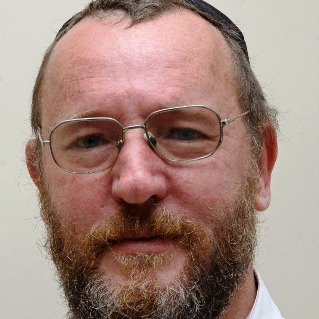SA
Shurat HaDin – bankrupting international terrorism
Terrorists need more than bombs and willing bodies to carry out their attacks; what they also require is money – lots of it. Combating international terrorism must therefore necessarily include drying up its sources of funding. In this regard, one of the most effective organisations to have emerged is Shurat HaDin, the Israel Law Centre.

DAVID SAKS
Addressing a capacity audience last Sunday evening, Shurat HaDin Director Nitsana Darshan-Leitner explained how her organisation, as its guiding slogan put it, went about “bankrupting terrorism – one lawsuit at a time”. The event took place at Beyachad under the auspices of the SA Zionist Federation.
“Our goal remains, as ever, to bankrupt international terrorism. It’s a fight we cannot afford not to engage in, and we will win it, because we are fighting for our international survival,” Darshan-Leitner said.
She detailed how Shurat HaDin, in a succession of successful lawsuits, had, among other things, won tens of millions of dollars in compensation for Israeli victims of terror and their families. It has also been instrumental in the freezing of over $600 000 in assets held by designated terrorist organisations.
One of Shurat HaDin’s most significant ventures was to institute civil action in a New York court against Arab Bank, the “Citibank” of the Arab world, on behalf of terror victims. Arab Bank was well-known for bankrolling terrorism against Israel, including paying large sums to the families of suicide bombers.
The suit, Darshan-Leitner said, had sent “shock-waves through the international banking community” and today few banking institutions anywhere would open accounts for designated terror organisations.
An exception was the Bank of China, which was operating bank accounts in Gaza. Shurat HaDin, on behalf of victims of Hamas attacks, had filed a huge lawsuit against the bank, which had sought in vain to get the courts to dismiss it.
The case was coming up for a hearing in New York. The organisation had also instituted court action against countries supporting terrorism, including Iran, Syria and, more recently, North Korea.
The 2010 Mavi Marmara incident, in which a Turkish ship intending to defy the naval blockade of Gaza was boarded by Israeli troops and several activists were killed after violently resisting them, was a propaganda coup for the BDS movement.
Darshan-Leitner recounted how Shurat HaDin had stymied an ambitious follow-up attempt, involving 15 vessels through, among other things, ensuring that the flotilla were unable to comply with the requirements of maritime law involving insurance, safety and adequate communications.
Because the flotilla was aimed at assisting an entity that was at war with an ally of the United States, it was also possible to indict those seeking to raise funds for it in the US. As a result, the venture was an expensive fiasco, and no further attempts to break the naval blockade – the legality of which had been confirmed by an international enquiry following the Mavi Marmara affair – had since been attempted.
Darshan-Leitner further explained how Shurat HaDin was involved in countering “lawfare” whereby BDS campaigners sought to indict Israelis in the International Criminal Court for ‘war crimes committed in the disputed territories.
One of its strategies was to prepare indictments against Palestinian leaders responsible for terror operations against Israel, so that the latter were aware that they themselves would be in the dock should any cases against Israel be brought to the ICC.